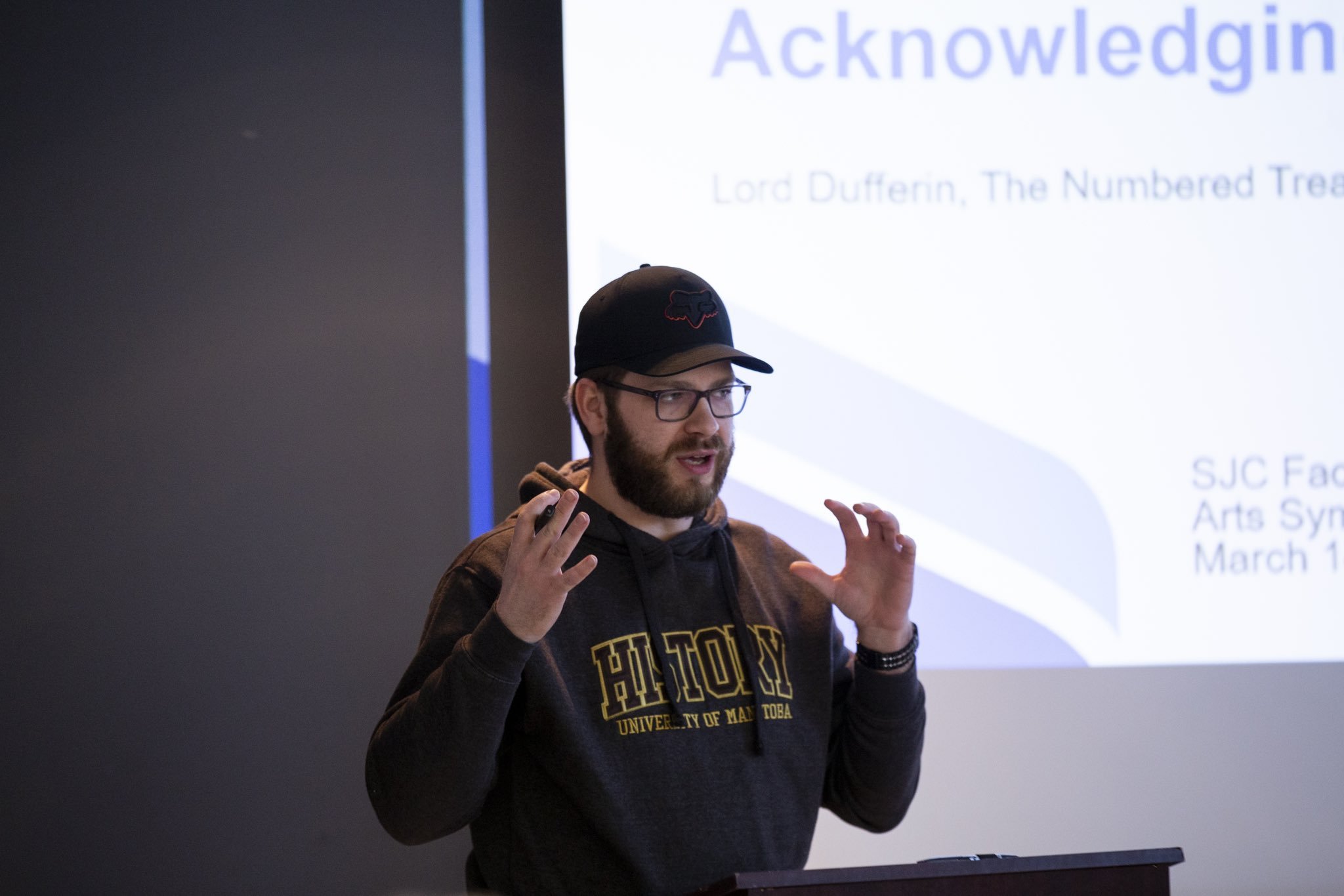St. John’s College Faculty of Arts Symposium
St. John’s College, University of Manitoba
On 21 February 2024, an email arrived in my inbox:
I know that you are members of SJC, so I thought that I would encourage you to present at this event. It’s good practice doing this kind of thing – and the world needs to hear more from History grad students like yourselves!
So that’s what I did! I delivered a paper titled: Acknowledging Land: Lord Dufferin, The Numbered Treaties and Indigenous Agency, derived from the research I had done for my 2024 NCAIS paper. In addition, this paper drew a stronger connection between critiques of land acknowledgements that say the practice obscures Indigenous agency by relegating Indigenous people to the colonial past, and treaty historians who say the terms of Treaty 6 are an explicit expression of Indigenous agency. There were two things that made this paper special:
1) I had the opportunity to present some original research in an under-examined aspect of Manitoba history to a community who has done much to support my studies, including friends and some of the SJC membership, faculty and fellows.
2) When Lord Dufferin visited the City of Winnipeg in 1877, several community groups came out to read formal addresses, and plead their cause to the Governor-General. One such group, seeking funding for a new building, was the same St. John’s College. This caused me a critical evaluation of the history of the College, and the role it has played in the colonization of Indigenous people, where even further work could be done. I argue that this is the best possible result of the performance of a land acknowledgement.
An SJC fellow from the Department of Anthropology made a fascinating presentation about analysis of fingerprints imparted to ancient pottery during the craft process that become preserved once the piece is fired. Analysis can be done that reveals what type of person was creating the pottery, which in turn can offer insights into ancient societies.
